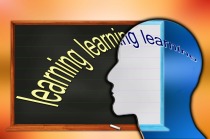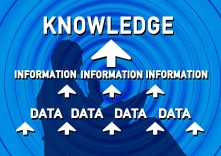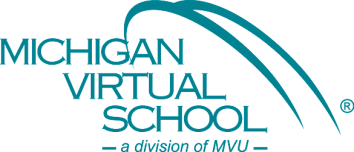Recommendations for Virtual School Leader Preparation
by Mark Sivy
Based upon the outcomes of my recently completed virtual school leadership study, recommendations are made for:
- Continued research
- Development of leadership standards
- Creation of leadership preparation and development opportunities
- Application of current findings to leadership practice
To continue the work started by this dissertation research, additional virtual school leadership study is recommended. The initial focus should be further study of virtual school leadership to discover remaining factors or factor details that influence the role. It is then suggested to broaden the scope of study to produce generalizable findings for the field of virtual school leadership. These findings would be inclusive of and applicable to state-led virtual schools (e.g., Florida Virtual School and Michigan Virtual School), charter virtual schools (e.g., Wisconsin’s Online Charter School), online school consortia, commercially-backed virtual schools (such as those using K-12), and other virtual learning endeavors.
 It is then recommended that the study of the virtual school leadership role be complemented by the development of a vetted and accepted compilation of virtual school leadership standards. The standards should be developed in association with a professional organization such as the International Association for K-12 Online Learning (iNACOL).
It is then recommended that the study of the virtual school leadership role be complemented by the development of a vetted and accepted compilation of virtual school leadership standards. The standards should be developed in association with a professional organization such as the International Association for K-12 Online Learning (iNACOL).
With standards in place, the next recommendation is the design and creation of comprehensive certification agendas, higher education programs, and professional development programs. These learning opportunities should be based upon research, practice, and standards and be created in a manner that ensures virtual school leaders develop knowledge and abilities through meaningful rhetoric, critical thinking exercises, and case study analyses. It is suggested that the development of these offerings include broad input and review from stakeholders, subject matter experts, existing leaders, and national professional organizations.
It is advocated that certification agendas and professional development programs be crafted to provide comprehensive leadership preparation that addresses all the themes presented in this study. These should be supplemented by ongoing communities of practice and support. In addition to the inclusion of central topics, professional development offerings should also include special topics as they arise, panel discussions, case presentations, and content for other levels of virtual school administration and leadership.
With the understanding that currently there is a relatively small group of individuals who would be interested in virtual school leadership, at least one graduate level course that introduces virtual instructional leadership should be offered in higher education programs at larger institutions. This overview course would benefit individuals who are in a variety of roles, from the leader of a traditional school offering online courses to the leader of a virtual school to individuals who are in other leadership roles associated with online learning.
 Realizing that online and virtual education and virtual schools are rapidly expanding and reaching a critical mass, the next recommendation is for the creation of a national center for virtual school studies at a higher education institution. This center would take the lead in the study of virtual school theory and practice including, but not limited to, leadership. Based upon the work of this center and other researchers, a graduate program offering a specialization in virtual school leadership should be created.
Realizing that online and virtual education and virtual schools are rapidly expanding and reaching a critical mass, the next recommendation is for the creation of a national center for virtual school studies at a higher education institution. This center would take the lead in the study of virtual school theory and practice including, but not limited to, leadership. Based upon the work of this center and other researchers, a graduate program offering a specialization in virtual school leadership should be created.
Individuals who are currently interested in becoming a virtual school leader should seek membership in professional organizations, read existing academic literature on virtual schools and virtual leadership, and take advantage of networking opportunities with current virtual school leaders. Virtual school employees who are considering advancement into a leadership position within their virtual school should inquire about succession planning. For purposes of support, documentation, and ongoing development, it is suggested for existing leaders to create a formal consortium or collaborative organization that is open to leaders from various online and virtual school efforts.
Reflection Point – A leader is best when people barely know he exists, when his work is done, his aim fulfilled, they will say: we did it ourselves. ~Lao Tzu
















